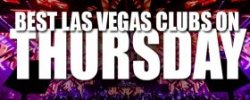 Whether city officials were aware of his plans for Club New York is unclear, but one thing is indisputable: They don’t like what they claim is going on inside the cavernous night club near the entrance to the city’s signature retail center and are intent on shutting the club down.
Whether city officials were aware of his plans for Club New York is unclear, but one thing is indisputable: They don’t like what they claim is going on inside the cavernous night club near the entrance to the city’s signature retail center and are intent on shutting the club down.
On Monday, as Bergos and his business partner, Michael Stein, were preparing for inarguably the most lucrative night on any club’s calendar, he said he expected city police would crash the club’s New Year’s Eve festivities.
City officials declined comment on their New Year’s Eve plans. But, in court papers, they make it clear it’s only a matter of time.
Already, they say, they have evidence that the club is a haven for drug use and underage drinking. In November, police staged an undercover operation where they claim they bought small amounts of marijuana and cocaine from club patrons. City officials took their evidence of illegal activity to their Nuisance Abatement Board. The panel agreed the club was a “public nuisance” and ordered it to close immediately.
Last week, a city magistrate took it a step further. The club, Special Magistrate Jennifer Ashton wrote, is “a serious threat to the public health, safety and welfare.” She yanked its city operating permit, although so far the doors remain open despite a $500-a-day fine for souing so.
Dueling lawsuits now pending in Palm Beach County Circuit Court make it clear the two sides have vastly different views about what goes on at the club and why city officials want it closed.
In court papers, Bergos scoffs at the city’s claims that drug use is so rampant that marijuana smoke permeates the air.
“I was unaware that drugs were sold at the club, but the sale of marijuana is so ubiquitous that you could probably find marijuana use and sales in any restaurant, club, sporting event in the United States, although we do try to police our patrons’ activities and do not permit or tolerate the use of marijuana in the club, ” he said in a signed affidavit.
Police targeted Club New York because city officials and those who run Related don’t like the club’s clientele, he claims. Featuring hip-hop music, the club caters largely to African-Americans. Bergos claims West Palm Beach Police Chief Vincent Demasi told him he didn’t like “those people” coming to CityPlace, according to the lawsuit he filed seeking to overturn the city board’s order.
City spokesman Elliot Cohen declined comment on Bergos’ claims, saying that the city’s evidence of the marijuana and cocaine that undercover agents purchased at the club speaks for itself. The city is asking a judge to enforce the board’s decision.
Bergos, who operates clubs in New York City and Las Vegas, said Related officials asked him to open the club. Bergos gained a name for himself in 1999 when hip-hop mogul Sean “Puff Daddy” Combs (who was with his then-girlfriend actress Jennifer “J.Lo” Lopez) was implicated and later cleared in a 1999 shooting at the original Club New York in Manhattan. Bergos said Related officials knew he would draw crowds to the then-faltering center.
Now, however, having dodged foreclosure in 2011, Bergos said he suspects that Related wants a tamer tenant. He said he has a 10-15 member security force and hires at least two off-duty police officers on the three or four nights a week the club is open from 10 p.m. to 3-4 a.m.








